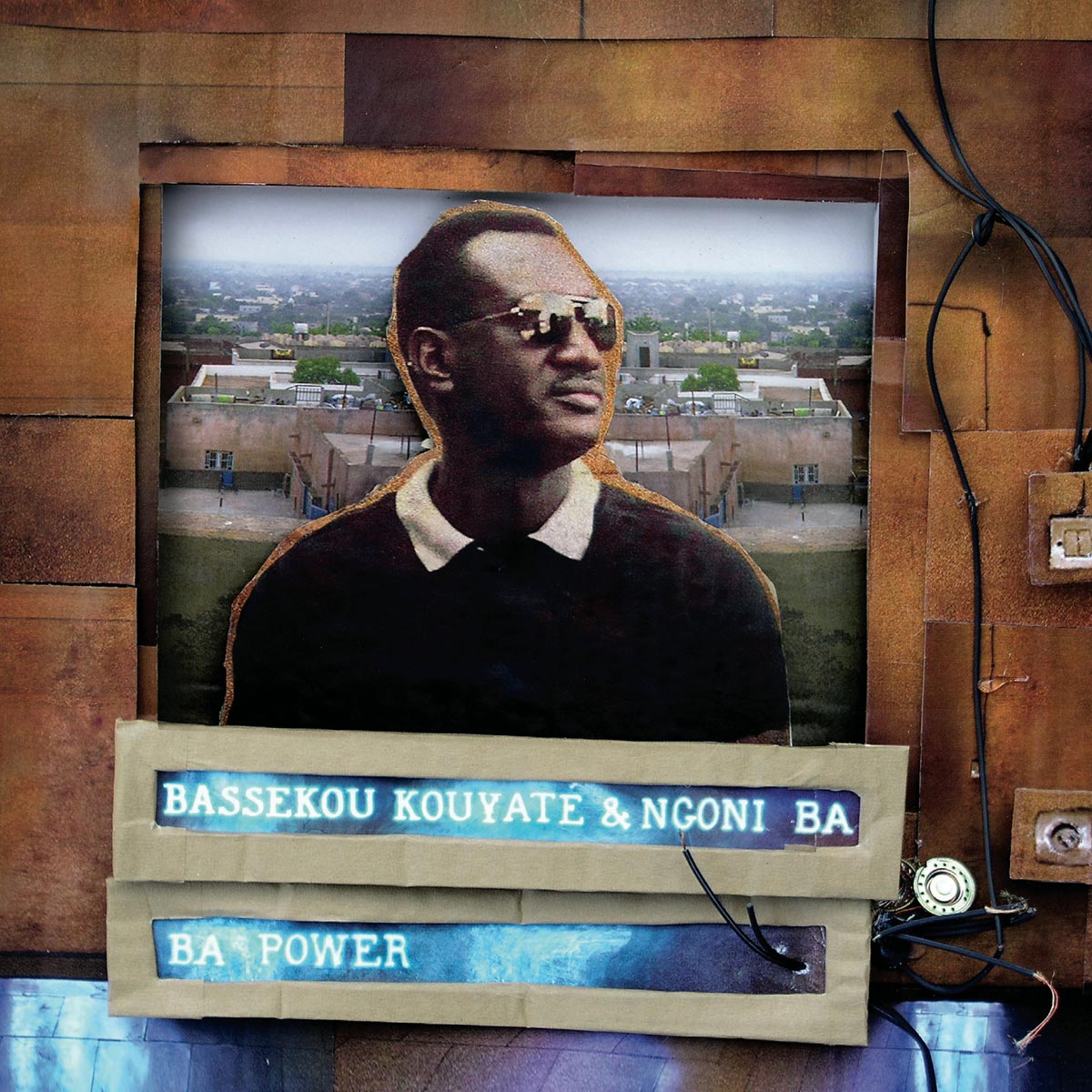
Bassekou Kouyaté & Ngoni Ba’s global audience has grown exponentially since they released their first album, Segu Blue, in 2007. The driving sound of Kouyaté’s electrified ngoni has captivated ears at concerts and festivals around the world. This has always been his intention; to spread the sound of Mali to as many places as possible. During his travels, Kouyaté has noticed the way rock and roll influences musical styles from around the world.
The latest offering from Bassekou Kouyaté & Ngoni Ba, Ba Power, features the hardest sound of any of their records with the overdrive and wah-wah on the ngoni cranked up and a drum kit holding down the foundation for the group, with additional rhythm coming from the calabash, yabara, tamani and tamaba. Even though the album has a bit of a crunch, there’s still plenty of funk swinging between the notes.
‘Ba’ translates to strong or great in Bambara, but it can also mean group. Kouyaté’s ancestors played ngoni, he plays ngoni and now his sons Moustafa and Mamadou play medium and bass ngoni respectively. The band is a tight-knit ensemble featuring family members and relatives. Lead vocals are handled by the ever-emphatic Amy Sacko, Kouyaté’s wife, whose commanding presence is felt on every song she sings. While many would consider Kouyaté the star of the show, the role Sacko plays fronting the voice of the group is not to be underestimated. Her delivery and phrasing is remarkable and conveys the emotion of each composition.
“Siran Fen” opens the record with a charge. The band comes crashing through the gate with fire in their belly. The ensemble has plenty of depth with up to five ngonis playing together. Kouyaté takes a rocking solo and then Sacko sings out a warning about people who come between families and communities. “Musow Fanga” is a song about the importance of women. The urgency of the piece is felt from the get-go as Sacko sings for women worldwide. David Jahr adds a yearning muted trumpet to the closing stages of the track.
The tension is palpable on “Abe Sumaya,” a song that declares that the Islamic fundamentalists will never take over Mali. Considering the subject matter, it may come as a surprise that this track has a laid back feel with a percussive, funky edge to it. Although there is still unrest, the lyrics mention how everything dies down eventually.
“Ayé Sira Bla” is a reworked praise song which mentions the generosity of the Diogoramé families who have supported Kouyaté over the years. Jon Hassell adds some otherworldly textures on his keyboard and trumpet which stand out but fit nicely. “Waati” is another rock fueled composition that allows Kouyaté to show off his skills in between intense arpeggiated phrases on backing ngonis.
“Fama Magni” is the surprising jewel in the crown of Ba Power. This praise song features Zoumana Tereta’s raspy vocals and soku fiddle. This understated jam loops to great effect with Kouyaté’s ngoni joining the soku and Samba Touré’s electric guitar. The record closes with a soothing instrumental entitled “Bassekouni,” which features Kouyaté improvising without effects on lead ngoni with support from the bass ngoni and calabash.
Purists may be disappointed with the rocking sound of this album, but it’s not a rock record. It has distortion, wah-wah and a drum kit, but that’s where the similarities end. The force of this band is felt across the nine tracks and the fact that this is a family affair only makes the bond stronger. Underneath the wailing strings of Kouyaté’s ngoni there is tradition and substance and his group help it shine.
Originally published in RootsWorld Magazine.




Be First to Comment